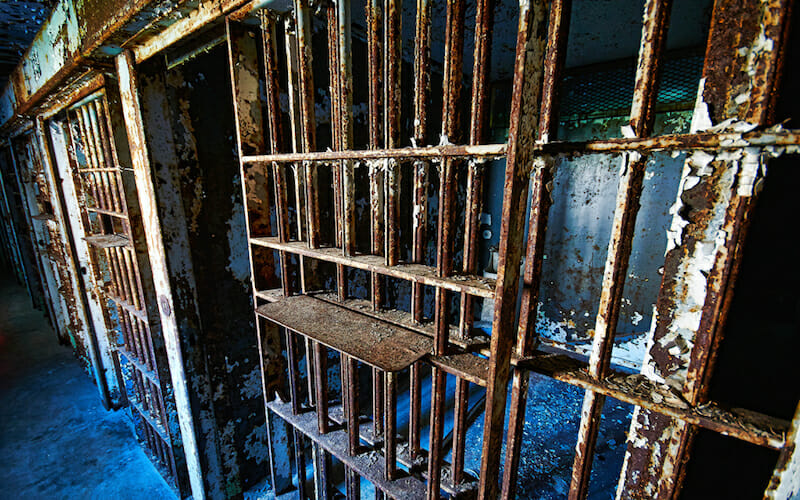
Romania’s Long Road to Justice
Romania will take over the presidency of the European Union in January 2019, an important step for a country that only joined the EU in 2007, and this will thrust the country under the spotlight in Brussels. When Romania gained EU membership, there were concerns that the country was not ready, in terms of corruption levels and the justice system. Unfortunately, many of those concerns are still valid today and Romania remains under special supervision by means of a cooperation and verification mechanism (CVM).
The country has been actively encouraged by the international community to pursue its anti-corruption, with the former head of the anti-corruption unit (the DNA), Laura Codruta Kövesi, who gained near celebrity status in the Western media for what they felt was her tough approach. But the international community has been negligent in its duty to insist upon respect for human rights and rule of law in the methods used to pursue this necessary anti-corruption campaign.
The DNA has been under domestic scrutiny since its former head, Ms. Kövesi, was heard on tape in 2017 commanding employees to pursue investigations against the Prime Minster and his colleagues and using the phrase “put pressure” with reference to the government in retaliation for their moves to curtail her authority. This was followed by revelations that in 2015 two senior DNA prosecutors had forced a witness to fabricate evidence against media owner and former MP Sebastian Gita, with the witness being told his family would be targeted unless he cooperated.
There is concern in Romania about the covert role of the intelligence services in directing anticorruption prosecutions. The Romanian Intelligence Service (SRI) carries out 20,000 telephone intercepts on behalf of the DNA every year and initiates DNA investigations. The SRI’s Dumitru Dumbrava said publicly that the SRI regards the judicial system as a “tactical field” of operations. Both the SRI and the DNA have been criticised for undermining judicial independence.
It was also revealed that protocols were signed between the Romanian intelligence service (the SRI) and the Supreme Court of Justice and Cassation, the General Prosecutor’s office, the Superior Council of Magistrates and the Lawyers’ Bar Association. These protocols are alarming in terms of human rights, constitutional propriety, and conflicts of interest. It is unacceptable by any European standards that the Superior Council of Magistracy (CSM), the body responsible for regulating the activities of judges and prosecutors, has a covert relationship that would influence the judges it appoints to rule in the interests of the intelligence services and their partners at the Anti-Corruption Directorate (the DNA). It is also claimed that the protocols are used to bypass constitutional safeguards in the gathering of evidence. The existence of such protocols makes it difficult to trust the results of the Romanian justice system.
Pressure on the judiciary is another cause for alarm. Marius Iacob, the First Deputy of the head of the Anti-Corruption Directorate (DNA), has publicly stated that the DNA is handling 300 files regarding magistrates. If we consider that a file can include two or three magistrates and that one magistrate might handle ten cases a year, this means the potential for magistrates being vulnerable to pressure or influence in the cases they hear is huge.
A recent report written by Emily Barley, Lisi Biggs-Davison and Chris Alderton and published by Due Process and CRCE, shows Romania to be the worst in the EU in terms of human rights violations. The European Court of Human Rights found a total of 272 violations from 2014 to 2017. In terms of inhumane or degrading treatment, Romania ranks consistently behind only Russia in the Council of Europe. For violating the right to a fair trial among the 47 Council of Europe members, Romania lags behind only Russia and Turkey.
Prison conditions are dire in Romania, with the Due Process report highlighting the 104 violations found in Romania by the European Court of Human Rights for inhuman or degrading treatment, most of which took place in detention. The overcrowding of Romanian prisons has drawn much criticism from the European Court of Human Rights. This is also commented on by the Due Process report: “In Romania, case after case has brought disgusting prison conditions to light; with infestations of bed bugs and vermin, inadequate washing facilities for prisoners, and cold, damp, dirty cells being the norm.”
Conditions in detention facilities made domestic, if not international, headlines when the Director of Rahova penitentiary hospital was charged, four employees detained and another four placed under house arrest, accused of committing violence against inmates. The charges against the staff included mistreatment and assault. This was followed by the death of former judge Stan Mustata. He was serving a prison sentence at the Jilava prison facility on bribery charges and received appalling treatment. Despite his known kidney problems, he was moved in the middle of the night from one prison to another while vomiting. He later died of a heart attack in Carol Davila civilian hospital in Bucharest and the hospital notified prosecutors about his death as their concerns about his prior treatment were so grave. This has led to inquiries being launched and it can only be hoped that these might finally bring some real change.
Of course we must support the Romanian presidency, but we must also use this spotlight to show the country that we care not only about their much-needed anti-corruption campaign, but also the manner in which they conduct it. Current standards regarding human rights, rule of law and judicial independence do not meet our expectations for an EU member, let alone president of the Council which is an absolutely crucial EU institution in Brussels.

